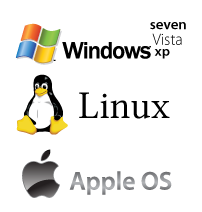This week’s big Apple announcement featured one big disappointment: Apple TV’s relative lack of, well, TV. Out of all of the hundreds of channels available on cable and satellite, only ABC and Fox agreed to offer their programs for rent on Apple TV. The fact that Steve Jobs is the largest single shareholder in, and on the board of, Disney — owner of ABC — perfectly illustrates this digital divide.
The technology to deliver any mix of on-demand and programmed television through the internet rather than through cable and satellite networks has existed for years. A slew of set-top boxes and “Media Center” computers were already perfectly capable of hooking up with large television screens at high resolutions with full surround sound before Apple took another stab at its “hobby” with a smaller, sleeker, simpler Apple TV.
The reason that technological breakthroughs and changing viewer habits haven’t made much of a difference even though ratings for TV overall has been in a steady decline for at least a generation is simple: Television networks have a monopoly on television shows, even though they make and own almost none of them. The people who make TV shows depend on the networks for seed money. Neither side would call this a perfect system, but it works. And it makes lots of people lots and lots of money.
Television networks are essentially the venture capitalists of video, placing bets on promising entrepreneurs and their crazy ideas which will cost a lot to develop. Just as it is in the high-tech world the payoff can be can be huge. But most programs which do get the green light fail. For every Lost there are dozens of Virtuality’s. Plenty of money gets spent on shows that nobody outside of the networks ever sees — the networks finance hundreds of pilot projects every year, and each one can cost millions to produce — but only a third or so ever air, according to Variety.
Their willingness to take huge risks dictates the need to score the occasional smash hit that will subsidize the surplus of bad decisions. So until the network VCs figure out how port the golden goose to IP-delivered television, no technology on earth will significantly change things.
Some people have cut the cord, but among them are viewers who don’t care for standard network fare, are willing to dip into illegal bit torrents and/or don’t mind complicated setups. Sure, we have Hulu for certain new shows, and Netflix for old ones, but it could be a decade or so until you’ll be legally able to watch whatever you want online.
Eventually, television networks stand to gain by cutting cable and satellite companies out of the equation and relying instead on consumers to finance the delivery and decoding of content with their own internet connections and set-top boxes — but don’t hold your breath, because it’s going to take a while, regardless of advancing technology.
Follow us for disruptive tech news: Eliot Van Buskirk and Epicenter on Twitter.
See Also:
- Apple Takes Aim at Cable With Tiny New Apple TV
- Americans Can’t Live Without Their Cable TV
- Steven Levy on the Promise and Perils of Divorcing Your Cable Company
- ESPN to ISPs: Pay for Your Customers to Play Video
Authors: Eliot Van Buskirk


















